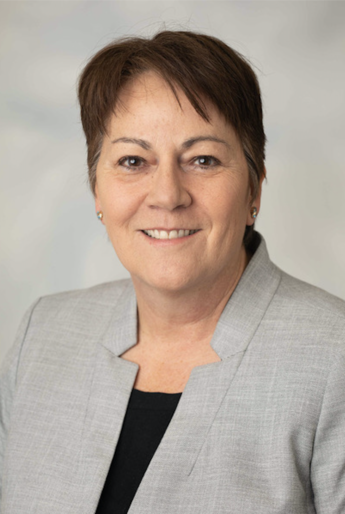AUSTIN, Texas — The University of Texas at Austin has named Claudia Mora the next dean of the Jackson School of Geosciences. Her appointment will begin February 1, 2020.
Dean-designate Mora comes to UT Austin from Los Alamos National Laboratory, where she serves as the deputy division leader of the Chemistry Division. In this role, she helps lead five diverse technical groups conducting research and development in actinide chemistry, radiochemical and isotope science, applied spectroscopy, and nuclear nonproliferation. She has also held leadership roles at Los Alamos in the Earth and Environmental Sciences Division and the Nuclear Nonproliferation and Security Program Office.
Prior to Los Alamos, she was a faculty member at the University of Tennessee – Knoxville and served as department head. What has brought her work great distinction is her leadership of collaborative research at the intersection of geology, soil science and dendrochronology. Her research has focused on stable isotope proxy records of climate and environment captured in terrestrial archives, including soils and fossil soils, tree rings and lake sediments.
“The Jackson School of Geosciences is widely regarded as one of the top programs in the world, with outstanding contributions in teaching and research. Claudia’s experience in both higher education and leading research and development at one of the top laboratories in the world brings tremendous value to UT Austin,” said Maurie McInnis, executive vice president and provost. “She also cares deeply about developing the next generation of thought leaders and supporting all students as they pursue their goals.”
Mora has been recognized nationally and globally for her expertise and professional service. She is a past president of the Geological Society of America and has been appointed as a councilor to the International Union of Geological Sciences, as a U.S. delegate to the International Geological Congress, and as a member of both the U.S. National Committee for Geological Sciences and the U.S. National Committee for Soil Sciences.
“I have long admired the breadth of research, innovation and education at the Jackson School of Geosciences, and joining this community is a tremendous opportunity. The educational experiences our students receive are excellent, the research is world-class, and the collective impact of the community is remarkable,” said Mora.
Mora earned an undergraduate degree from the University of New Mexico, a master’s degree from Rice University and a doctorate in geology from the University of Wisconsin-Madison.
Mora will succeed Sharon Mosher, who has served in her current role as dean since 2009. Mosher’s career at UT Austin spans four decades, and she has made significant contributions to the school and university communities in a variety of roles and capacities.
With more than 50 faculty members, 100 research scientists, 5,000 alumni and a combined graduate and undergraduate enrollment of 400, the Jackson School of Geosciences is one of the largest and most prestigious academic geosciences communities in the world. The school was ranked the No. 1 Geology program in the country by the U.S. News & World Report 2019 edition of “Best Graduate Schools,” No. 7 in Earth Sciences (No. 3 among public universities) and No. 7 in Geophysics and Seismology (No. 2 among public universities). Its faculty and research scientists include members of the National Academy of Engineering and winners of every prestigious award available in the geosciences, including the Twenhofel Medal and the Penrose Medal. The Jackson School is composed of three world-class units – the Bureau of Economic Geology, the Department of Geological Sciences and the Institute for Geophysics – that give it a depth and breadth of expertise matched by few institutions.



